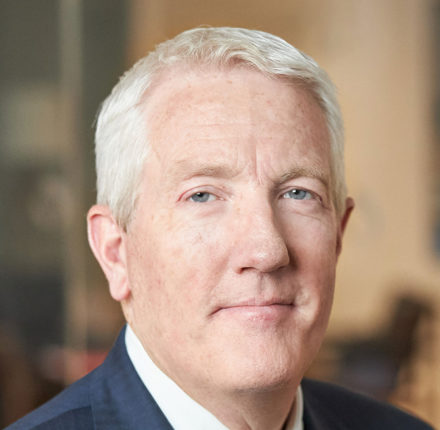Technology & Gig Economy
NEW YORK CITY—Mayor Adams Creates Nation’s First Office of Digital Assets & Blockchain
Mayor Eric Adams (D) signed an executive order establishing the New York City Office of Digital Assets & Blockchain to promote responsible use, coordinate agency initiatives, and spur economic opportunities. Moises Rendon was appointed executive director and will convene a commission of industry leaders to advise the office’s work.
Housing & Real Estate
BALTIMORE—Council Advances Housing Density Bills Amid Equity Concerns
The Baltimore City Council voted to advance two bills easing development rules, including reduced parking requirements and closer property line construction, despite warnings from some members that the changes could accelerate gentrification. A third, more controversial proposal to allow multifamily housing in single-family zones is still under review.
BOSTON—Council Candidates Split on Housing Issues
Candidates for Boston City Council’s at-large seats named housing the top issue, dividing over reviving rent control while agreeing to allow accessory dwelling units citywide. Most also backed eliminating parking minimums and permitting buildings up to 12 stories near transit.
CHICAGO—Council Approves Plan Allowing Taller Buildings, More Housing
The Chicago City Council approved a rezoning plan to allow taller buildings and more housing along Broadway in Edgewater and Uptown, aiming to boost affordability and transit-oriented development. Some residents oppose it, citing gentrification and lack of community input.
PHILADELPHIA—Mayor Parker Reshapes Land Bank Board to Accelerate Housing Initiative
Philadelphia Mayor Cherelle Parker (D) replaced two members of the city’s Land Bank board to accelerate her plan to build or renovate 30,000 homes. The move aims to break gridlock over how to use vacant city-owned land and prioritize faster development to address housing needs.
SAN DIEGO—Mayor Gloria Supports Ending Minimum Lot Sizes in Targeted Approach
San Diego Mayor Todd Gloria (D) and City Councilmember Sean Elo-Rivera (NP) support ending minimum lot sizes in select areas, aiming to boost housing while avoiding citywide controversy. Their approach reflects a political balancing act—responding to housing advocates’ calls for reform without provoking backlash from neighborhoods wary of increased density.
SEATTLE—Council Approves Higher MFTE Rent Caps
The Seattle City Council unanimously approved raising rent limits for Multifamily Property Tax Exemption (MFTE) units, a program that gives developers a 12 year property tax break if they cap rents on at least 20% of apartments.
TWIN CITIES—Minneapolis City Council Passes Ordinance Strengthening Renter Protections
The Minneapolis City Council passed an ordinance requiring landlords with severely code-violating properties to get Council approval to renew their rental licenses to improve tenant safety. The law takes effect in January 2027.
Labor & Employment
BALTIMORE—Council Unveils Pro-Worker Agenda With Bill of Rights
City leaders introduced a resolution outlining seven core labor rights—including fair wages, safe conditions, and collective bargaining—as part of a broader legislative push to strengthen union protections and workplace standards. Upcoming bills will aim to address payroll delays and legal costs tied to contract disputes in response to federal rollbacks on union rights.
NEW YORK CITY—Broadway Unions Authorize Strike Votes
Two Broadway unions, Actors’ Equity and AFM Local 802, approved strike authorizations while bargaining with producers under expired contracts. The unions are seeking higher pay, stronger health care contributions, and staffing safeguards.
Policy & Politics
BOSTON—Council Weighs Publicly Owned Grocery Stores
Boston City Council President Ruthzee Louijeune (D-At Large) and Councilor Liz Breadon (D-District 9) filed a hearing order to explore city-owned or city-supported grocery stores to expand affordable food access amid inflation, SNAP cuts, and nonprofit closures. The measure was sent to committee.
DETROIT—Mayoral Candidates Outline Contrasting Visions in First Debate
Detroit mayoral candidates Mary Sheffield and Reverend Solomon Kinloch Jr. participated in their first televised debate, presenting differing approaches to crime, infrastructure, and economic development. Sheffield highlighted her experience and ongoing progress as City Council President, while Kinloch advocated for significant changes, including a Children’s Trust Fund and increased neighborhood investment.
PHILADELPHIA—Council Moves to Crack Down on Unlicensed Smoke Shops
The Philadelphia City Council advanced two bills to make it easier to shut down stores selling cannabis and tobacco without permits and signaled plans to hold landlords accountable for renting to illegal operators, citing growing neighborhood concerns over nuisance businesses.
PHILADELPHIA—Council Member Introduces “Affordable Philly Now” Legislation
Philadelphia City Councilmember Nicolas O’Rourke (WFP-At Large) introduced legislation to create a rent rebate for low-income tenants, make free SEPTA passes permanent through a charter amendment, and ban privatization of the city’s water system, part of his “Affordable Philly Now” initiative.
RICHMOND—Mayor Avula Launches 7-Pillar Action Plan to Boost City Services
Mayor Danny Avula (D) unveiled a 25-page Mayoral Action Plan focused on improving financial management, housing, infrastructure, and government accountability, with clear performance metrics and a forthcoming online dashboard for public progress tracking.
Public Health & Safety
PHILADELPHIA—Council Advances Security Guard Training Bill
A proposal requiring 40 hours of training for new private security guards and annual refreshers cleared the City Council’s Commerce Committee. Backers say it will improve safety ahead of major 2026 events, while critics warn of higher expenses and question the redundancy of employer-provided training.
TWIN CITIES—Minneapolis Installs New Lights as Part of Safety Initiative
The City of Minneapolis installed new LED pedestrian lights in Dinkytown as part of its “Dinky After Dark” safety initiative to improve visibility and reduce crime near the University of Minnesota. Funded through the city budget, the project responds to years of community advocacy and student concerns, with many now reporting a greater sense of safety at night.
WASHINGTON, D.C.—Council to Revisit Permanent Juvenile Curfew Proposal
After voting down an extension of the summer curfew for teens under 18, the D.C. Council will reconsider the measure and hold a hearing on making it permanent. Councilmember Brooke Pinto (D-Ward 2) cites the curfew’s effectiveness in reducing large youth gatherings without increasing arrests.
Taxes & Spending
CHICAGO—Mayor Johnson’s $16.6B Budget Would Revive Corporate Head Tax
Chicago Mayor Brandon Johnson’s (D) $16.6 billion proposed budget for 2026 would raise over $586 million through new taxes on large businesses—including a $21-per-employee monthly “corporate head tax” on large companies as a way to raise $100 million for public safety programs. Critics warn it could hurt the economy, while supporters say it funds vital services like public safety and mental health.
LOS ANGELES—City’s ”Mansion Tax” Faces Dual Rollback Efforts
Los Angeles Mayor Karen Bass (D) asked the City Council to grant a one-time exemption from Measure ULA, the “mansion tax,” for Pacific Palisades homeowners impacted by wildfires earlier this year. The proposed pause seeks to ease rebuilding efforts and marks the first significant move to alter the tax since its 2023 implementation.
RICHMOND—Council Rejects Real Estate Tax Cut to Preserve City Services
The Richmond City Council voted to keep the property tax rate at $1.20 per $100 of assessed value, siding with Mayor Avula’s warning that lowering it would slash $17 million in revenue and force service cuts, despite rising home values and calls for homeowner relief.
SAN DIEGO—Proposal to Tax Short-Term Vacation Rentals Could Be Headed for SD Ballots
San Diego may consider a new tax on short-term rentals and vacation homes, aiming to raise up to $135 million to fund city services and address housing shortages. Supporters say it boosts affordability, while critics warn it could hurt tourism and small property owners.
SEATTLE—Council Approves Public Safety Sales Tax
The Seattle City Council voted 8–1 to adopt a 0.1% sales tax dedicated to public safety, expected to raise $39 million in 2026. The funds would help double the city’s Community Assisted Response and Engagement Department non-police responder program from 24 to 48 staff.
TWIN CITIES—Minneapolis Anti-Homelessness Program Faces “Fiscal Cliff”
Minneapolis’s “Stable Homes Stable Schools” homelessness prevention program is facing a $3.2 million shortfall and has stopped accepting new referrals. As the city debates how to save it, leaders are caught between funding this program or another vital housing initiative.
Transportation & Mobility
CHICAGO—CTA Proposes Fare Hikes, Restate 2026 Budgets
The Chicago Transit Authority (CTA) plans a 25-cent fare hike in 2026 to address budget shortfalls and calls on the Illinois General Assembly to secure new state funding to avoid further fare increases and service reductions. Without legislative action, the transit system faces deepening deficits and potential cuts in the coming years.
DETROIT—New Multimodal Transportation Hub Coming to Detroit
Detroit is set to construct a new multimodal transportation hub in the Michigan Central Innovation District thanks to a $40 million partnership between the Michigan Department of Transportation, the City of Detroit, and Michigan Central.
WASHINGTON, D.C.—Streetcar to End Service in March After Budget Cuts
The D.C. Council eliminated funding for the H Street streetcar line, forcing an early shutdown in March with no clear timeline for Mayor Bowser’s proposed electric bus replacement, as ridership and expansion plans failed to meet expectations.







